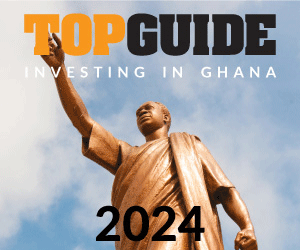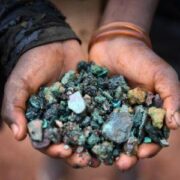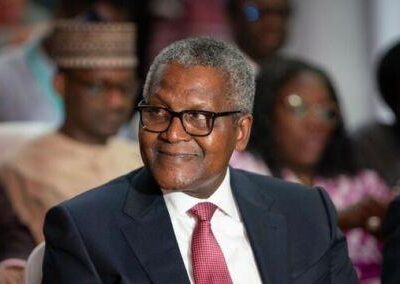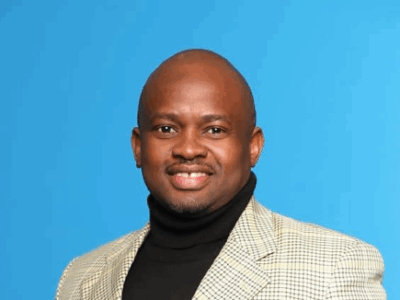
A high-level panel of senior bankers, economists, and political leaders kicked off the first day of the Afreximbank Annual Meetings in the Bahamas this June. The discussion focused on strategies for Africa to assert itself and its needs more effectively within the global economic system in the face of multiple global shocks, or what some call a “polycrisis.”
The panellists underscored the need for African institutions, backed by African capital, to take the lead in shaping the continent’s destiny, rather than relying solely on international financial institutions. Other important takeaways from the thought-provoking conversation included the importance of economic diversification. Africa must break free from overreliance on a narrow spectrum of export, experts argued.
South-South cooperation and African unity also present significant opportunities for progress. Similarly, African countries need to acknowledge the pivotal role of private enterprises in driving economic expansion. Experts also called for a strong focus on export-oriented manufacturing, noting that industrialisation was the proven path to prosperity.
Diversification and cooperation provide a way forward
John Rolle, governor of the Central Bank of the Bahamas, opened discussion with an acknowledgment that, like many nations in Africa and the global south, the Bahamas had felt the sting of the recent spate of global economic shocks. “When you look at the Caribbean countries, we are on the receiving end. We fit the definition of small countries and are not able to influence oncoming shocks,” he noted.
The Bahamas – and particularly the islands’ significant tourism industry – had been adversely impacted by rising geopolitical tensions, higher fuel costs, and global supply chain disruptions, not to mention higher interest rates, he observed. “This situation has impacted disposable incomes and spending capacity for tourists.” Worse still, the economic fallout for the Bahamas and other islands in the Caribbean has been worsened by the escalating impact of increasingly deadly climatic events in the Atlantic.
Crises have seemingly become unrelenting in recent years; yet there is a way forward, argued Rolle. “In the case of the Bahamas, it’s about having a more diversified economic base. Diversification in many respects does not necessarily mean new industries and sectors, but making the industries which exist draw on market opportunities in areas such as Africa,” he said.
Underscoring the strong ties between Africa and the Caribbean and the opportunity it presents, Kevin Greenidge, governor of the Central Bank of Barbados, noted that the Caribbean Community (CARICOM) is a part of Global Africa. “We are the 55th state, separated, by a big distance; and Afreximbank has come to help make the connection back to the continent.” He stressed the significance of strategic alliances and cooperation. “With one voice, one Global Africa voice, I believe you can make a difference.”
Emphasising the need to pursue a climate-positive growth model, Greenidge urged leaders to leverage Africa’s vast renewable energy resources and critical minerals as economic opportunities at a time when climate adaptation is top on the agenda of every investor.
The private sector’s powerful role
Yemi Osinbajo, former vice president of Nigeria, said that the private sector had to play an active and assertive role in pushing Africa’s transformation forward on a global platform. He gave the example of Nigeria, where he said the government focused on creating an environment for the private sector to invest.
“For us in Nigeria, the question has always been one of ensuring that we are able to translate excellent potential into reality. One of the easiest ways of doing this is creating an environment for the private sector to invest.”
He urged African leaders not to get distracted by global headwinds, and instead focus their energy on implementing local projects in partnership with the private sector. It’s about “getting stuff done in our environment,” despite the global shocks, he told delegates.
“There is a fair amount of progress in terms of how the private sector is working,” said Osinbajo. He noted that Nigeria was leading the way in terms of public private cooperation, citing the example of the Dangote refinery, which he termed as a “very significant development,” highlighting the fact that it is the largest single line refinery in the world. “That it happened, and that it was fully implemented, speaks to the fact that the private sector is mature and to do big things and attract cheaper capital, even sometimes than the government.”
Building Africa’s own institutions
Donald Kaberuka, chairman and managing partner of consultants SouthBridge Group and former president of the African Development Bank Group (AfDB), emphasised that leaders must now view crises as a set of ongoing phenomena as opposed to a single event. “We have to get used to managing crises. There will always be a crisis and we prepare for that. They come at the same time, are deep and are multifaceted.”
For Africa not just to grow but to prosper in this new global reality, its leaders need to reimagine globalisation and the institutions that have steered it thus far, he argued. “We can no longer only rely on the international financial system. There is still some assistance, but as you saw during the Covid-19 pandemic it didn’t work very well for us.”
The way forward for Africa is to invest in its own institutions, to back its own agenda, and drive it forward, noted Kaberuka. “Building Africa’s own institutions makes them stronger,” he said, citing the need to now more than ever rally behind institutions such as the African Union, Afreximbank, and the AfDB, among others. “If you don’t do that and continue relying on the international financial architecture, we have seen how bad it can get.”
Citing the opportunity for the Caribbean and Africa to draw on their shared heritage and the platform of Global Africa to step up cooperation, he said it’s “very good that in the global south we begin to build links, a kind of globalisation that is regionalised”.
Kaberuka acknowledged the need for internal reforms, emphasising “debt management, fiscal discipline, and allowing markets to adjust” as crucial technocratic issues. “The political issue is how do we strengthen Africa’s own institutions, increase cooperation in the global south, and make sure that we build the buffers needed because there will always be crises.”
Uniting for export-oriented manufacturing
Howard Nicholas, senior lecturer in economics at the Erasmus University Rotterdam, argued that developing nations can achieve prosperity by focusing on manufacturing for export. He said that this is something that former colonial powers had known for ages as the secret to economic prosperity, prompting them to restrict manufacturing in their colonies.
“When Britain was a coloniser it actually banned manufacturing production in all its colonies, including the United States. Why? Because it knew that once a country starts export-oriented manufacturing it’s the beginning of the end,” he argued.
He added that some today express concerns about Africa’s industrial development, fearing it will worsen climate change. The professor dismissed these worries, stressing the potential benefits of manufacturing for African nations and the fact that climate change was triggered by industrialised nations, not Africa.
Jeffery Sachs, professor of economics at Columbia University in New York, stressed that Africa must unify to become a major player on the global stage. He argued that Africa having 1.4bn people positions it alongside giants like China and India; but its fragmented nature weakens its influence.
“Africa’s most important challenge is unity. You cannot operate in this world as a small country. Even the small countries that are successful are part of somebody’s world. And Africa is too big to be part of somebody’s world. It’s got to be Africa as a fundamental pillar of the world scene.”
Sachs blamed the current division of Africa into 54 separate nations on the Berlin Conference of 1884-85 that partitioned the continent: “that is deleterious for geopolitics, for risk premia, for the scale of investment and for industry”. Transforming “cannot happen one country at a time,” he noted. The professor called for stronger roles from African institutions like the Afreximbank and AfDB, and urged urgent investment in education, which he sees as a critical priority for the continent’s progress.
Putting African capital to work
Denys Denya, senior executive vice president of Afreximbank, stressed that to turn the potential of Global Africa into a reality you need strong institutions. This, he argued, can only happen with strong support from African governments for their own home-grown institutions. Crucially, Africans need to put their own capital to work. This is thankfully happening, he noted.
He revealed that, during the Covid-19 pandemic the African Union called on Afreximbank to raise new equity to help deal with the pandemic. In response, the bank provided a $2bn guarantee to enable vaccines to come to the continent. “In return, African governments actually helped us raise $2.6bn in new equity. That is making the institution stronger and it can now intervene more on the continent.”
Emphasising the need for African solutions to Africa’s problems, he highlighted the success of Afreximbank’s central bank deposit program as a stellar example of Africa owning its own capital and using it to transform its destiny.
“We raise funding from the continent in the form of deposits from central banks and then leverage that to gain more funding to assist the continent to deal with its economic challenges.” He disclosed that when the program was launched in 2014 it managed only to raise $75m in its first year. “Since then we have cumulatively raised $38bn. Central bank deposits now constitute about 30% of our funding base,” he said.
“It’s money from the continent. It enables us to provide central banks with a better return than they can currently get, and also enables us to reduce our cost of funding, meaning that we can now lend to more African entrepreneurs than we could. So, it’s a win-win situation.”












Comments